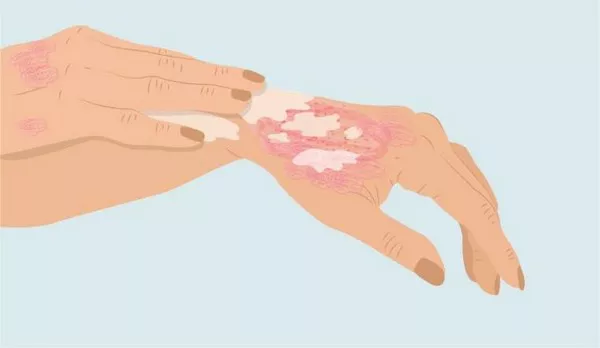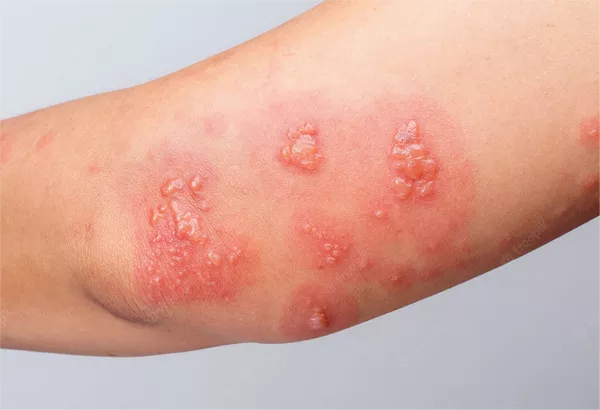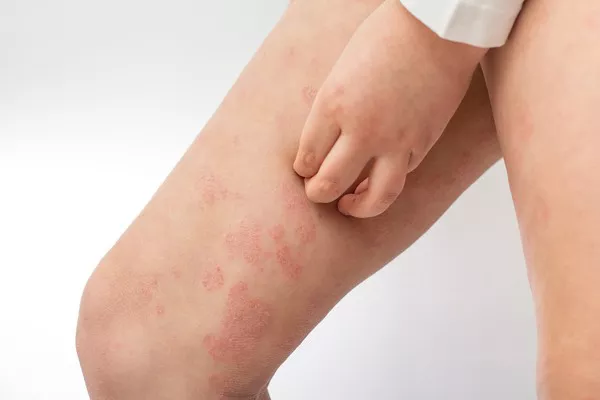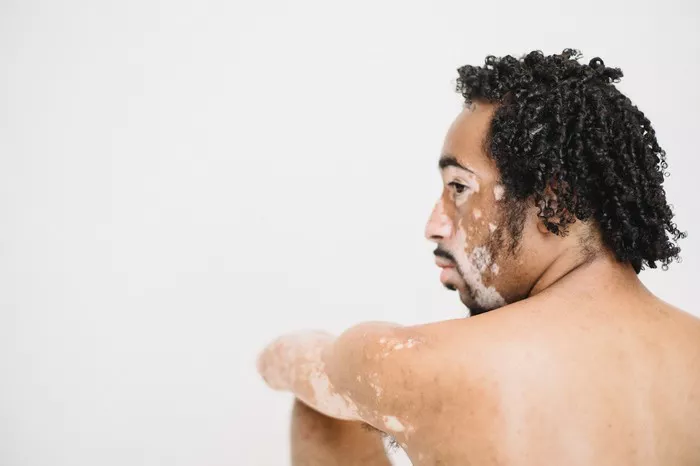Psoriasis, a chronic skin condition characterized by red, scaly patches, has perplexed humanity for centuries. Long before contemporary medicine began to unravel its mysteries, ancient civilizations developed an array of remedies to manage this perplexing ailment. From the herbal concoctions of Traditional Chinese Medicine (TCM) to the therapeutic practices of Ayurveda and the natural wisdom of Native American tribes, these ancient remedies offer valuable insights into holistic healing. This article delves into the depths of history to uncover the traditional treatments for psoriasis, highlighting the enduring relevance of these ancient practices.
The Historical Context of Psoriasis
Psoriasis is not a modern affliction; historical records and ancient texts indicate that it has been present for thousands of years. The term ‘psoriasis’ itself is derived from the Greek word ‘psōra,’ meaning ‘itch’ or ‘scaly.’ The earliest known references to psoriasis are found in ancient Egyptian papyri, which document treatments for various skin conditions. Similarly, the Old Testament mentions leprosy and other skin diseases, often thought to include psoriasis, suggesting that this condition has long been a part of human health challenges.
Traditional Chinese Medicine: Balancing the Body’s Energies
Traditional Chinese Medicine (TCM) views psoriasis not merely as a skin disorder but as a manifestation of internal imbalances. According to TCM, psoriasis results from the disharmony of the body’s Qi (vital energy), blood, and the interplay of heat and dampness. Practitioners aim to restore balance through various modalities, including herbal medicine, acupuncture, and dietary adjustments.
1. Herbal Remedies
TCM employs a rich pharmacopeia of herbs to treat psoriasis, often tailored to the individual’s specific symptoms and constitution. Common herbs include:
Dang Gui (Angelica sinensis): Known for its blood-nourishing properties, Dang Gui helps to alleviate dryness and improve circulation.
Sheng Di Huang (Rehmannia glutinosa): This herb cools the blood and nourishes the yin, addressing the heat and inflammation associated with psoriasis.
Bai Xian Pi (Cortex Dictamni): Used to clear heat and dampness, Bai Xian Pi helps reduce the itching and scaling characteristic of psoriasis.
2. Acupuncture
Acupuncture, the practice of inserting fine needles into specific points on the body, aims to rebalance the flow of Qi. For psoriasis, acupuncture points are selected to address heat, dampness, and blood stasis. Clinical studies suggest that acupuncture may help reduce the severity of psoriasis symptoms and improve the patient’s quality of life by modulating the immune response and reducing inflammation.
Ayurvedic Approaches: Harmonizing the Doshas
Ayurveda, the traditional medicine system of India, approaches psoriasis as a complex interplay of the body’s doshas—Vata, Pitta, and Kapha. Psoriasis, known as “Sidhma Kushta” in Ayurveda, is primarily associated with the aggravation of the Kapha and Vata doshas, leading to the accumulation of toxins (Ama) in the skin.
1. Herbal Treatments
Ayurveda offers a plethora of herbal remedies to detoxify the body and pacify the imbalanced doshas:
- Turmeric (Curcuma longa): Renowned for its anti-inflammatory and anti-bacterial properties, turmeric is a staple in Ayurvedic treatment for psoriasis.
- Neem (Azadirachta indica): Known for its detoxifying and purifying properties, neem helps cleanse the blood and skin.
- Guduchi (Tinospora cordifolia): This herb boosts the immune system and helps in reducing the severity of psoriasis symptoms.
2. Panchakarma
Panchakarma, a detoxification and rejuvenation process, is integral to Ayurvedic treatment. It involves five primary procedures: Vamana (therapeutic vomiting), Virechana (purgation), Basti (enema), Nasya (nasal administration), and Raktamokshana (bloodletting). These procedures aim to remove toxins from the body and restore doshic balance, thereby alleviating psoriasis symptoms.
3. Dietary and Lifestyle Modifications
Ayurveda emphasizes the importance of diet and lifestyle in managing psoriasis. A diet rich in fresh fruits, vegetables, whole grains, and lean proteins, while avoiding spicy, oily, and processed foods, is recommended. Regular exercise, adequate sleep, and stress management techniques such as yoga and meditation are also crucial components of Ayurvedic therapy.
Ancient Egyptian Medicine: The Wisdom of Pharaohs
Ancient Egyptian medicine is renowned for its advanced understanding of various diseases, including skin conditions like psoriasis. The Ebers Papyrus, one of the oldest medical texts, contains numerous references to skin ailments and their treatments.
1. Topical Applications
The Egyptians made extensive use of natural substances for topical applications:
- Aloe Vera: Known for its soothing and healing properties, aloe vera was widely used to treat inflammatory skin conditions.
- Honey and Resin: A combination of honey and resin was applied to the skin to promote healing and reduce inflammation.
2. Internal Remedies
Egyptian healers also utilized various plant-based remedies for internal use, aimed at purifying the body and supporting overall health:
- Herbal Concoctions: Infusions made from herbs like myrrh and frankincense were believed to purify the blood and support skin health.
Native American Healing: Nature’s Pharmacy
Native American healing traditions are deeply rooted in the belief that the body, mind, and spirit are interconnected. Treatments for psoriasis often involve a combination of herbal medicine, spiritual practices, and lifestyle modifications.
1. Herbal Medicine
Native American healers have long used the natural flora of their environment to treat skin conditions:
- Echinacea: Known for its immune-boosting properties, echinacea was used both topically and internally to treat various skin ailments.
- Goldenseal: This herb was used for its anti-inflammatory and antimicrobial properties, helping to reduce the symptoms of psoriasis.
- Witch Hazel: Applied topically, witch hazel helps to soothe irritated skin and reduce inflammation.
2. Sweat Lodges
Sweat lodges, or purification ceremonies, play a significant role in Native American healing. These rituals involve sitting in a small, enclosed structure with heated stones, inducing sweating to detoxify the body. This process is believed to cleanse the skin and body of impurities, providing relief from conditions like psoriasis.
3. Spiritual Healing
Native American healing practices often incorporate spiritual elements, such as prayer, chanting, and the use of sacred objects. These practices aim to restore harmony between the body, mind, and spirit, addressing the underlying spiritual and emotional causes of psoriasis.
European Folk Medicine: Time-Honored Treatments
European folk medicine, with its rich tapestry of herbal remedies and traditional practices, offers valuable insights into the treatment of psoriasis.
1. Herbal Remedies
European healers relied heavily on the medicinal properties of local plants:
- St. John’s Wort (Hypericum perforatum): Used for its anti-inflammatory and wound-healing properties, St. John’s Wort was applied topically to soothe psoriatic skin.
- Burdock Root (Arctium lappa): Known for its detoxifying effects, burdock root was consumed as a tea to purify the blood and support skin health.
- Chamomile (Matricaria chamomilla): Chamomile was used both topically and internally for its calming and anti-inflammatory properties.
2. Balneotherapy
Balneotherapy, the practice of bathing in mineral-rich waters, has been a cornerstone of European folk medicine. Natural springs and baths, particularly those high in sulfur and other minerals, were believed to have healing properties for various skin conditions, including psoriasis.
Integrating Ancient Wisdom with Modern Science
While modern medicine offers a range of effective treatments for psoriasis, including topical steroids, systemic medications, and biologics, there is growing interest in integrating ancient remedies into contemporary care. The holistic approaches of ancient healing traditions, with their emphasis on restoring balance and harmony, can complement modern therapies and provide a more comprehensive treatment plan.
1. Herbal Supplements
Many herbs used in ancient remedies, such as turmeric, neem, and aloe vera, are now available as supplements. These can be used alongside conventional treatments to enhance their effectiveness and reduce side effects. It is important, however, to consult with a healthcare provider before incorporating any herbal supplements into a treatment regimen.
2. Mind-Body Practices
Mind-body practices such as yoga, meditation, and acupuncture, rooted in ancient traditions, have been shown to reduce stress and improve overall well-being. Since stress is a known trigger for psoriasis flare-ups, these practices can be valuable adjuncts to conventional treatments.
3. Personalized Medicine
One of the key strengths of ancient healing systems is their focus on individualized treatment. This approach aligns with the principles of personalized medicine, which tailors treatments to the unique genetic, environmental, and lifestyle factors of each patient. By combining the personalized insights of ancient remedies with the precision of modern medicine, healthcare providers can develop more effective and holistic treatment plans for psoriasis.
Conclusion
The ancient remedies for psoriasis, developed through centuries of empirical observation and holistic understanding, offer a rich tapestry of treatment opt medicine, we can uncover time-tested approaches that complement modern therapies. Integrating these ancient practices with contemporary scientific advancements provides a more holistic and personalized approach to managing psoriasis, promoting not only skin health but overall well-being. As we continue to navigate the complexities of this chronic condition, the lessons from ancient healers remind us of the profound interconnectedness of the body, mind, and spirit in the journey toward healing.
Related Topics:



























